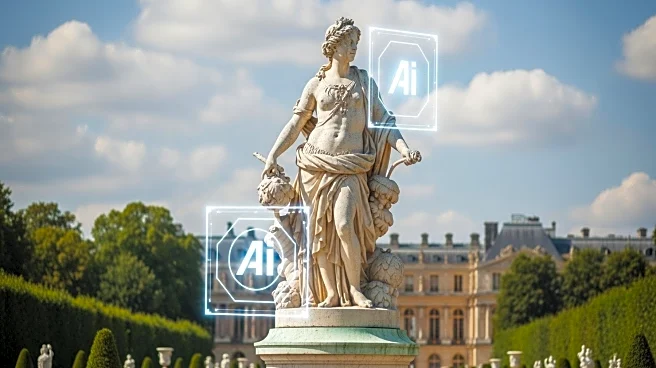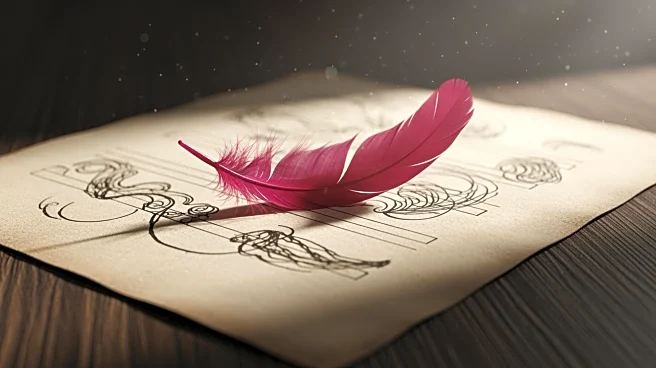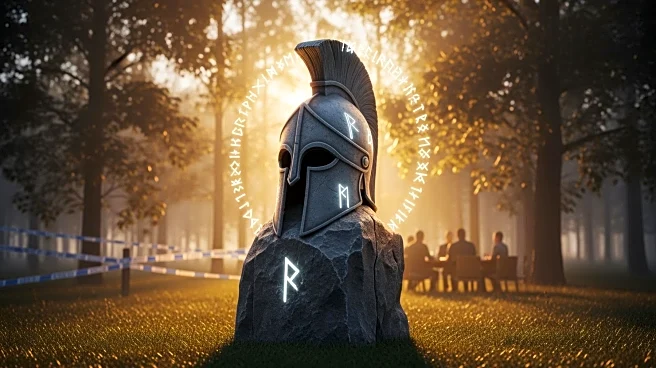What is the story about?
What's Happening?
Visitors to the Palace of Versailles can now interact with statues through a new app powered by artificial intelligence. Developed by Ask Mona and OpenAI, the app allows users to converse with 20 statues in the gardens, including Apollo and Cupid, in three languages. The app provides historical anecdotes and details about Versailles' heritage, enriching the visitor experience. A demonstration by The New York Times highlighted a conversation where a teenage boy asked the statue of Cupid about becoming rich, receiving a philosophical response about the true riches of love.
Why It's Important?
This innovative use of AI technology enhances cultural and historical education by providing interactive experiences for visitors. It represents a significant step in integrating technology with heritage sites, potentially increasing engagement and understanding of historical contexts. The app could serve as a model for other cultural institutions seeking to modernize visitor interactions and offer personalized educational content.
What's Next?
The success of the AI app at Versailles may encourage other historical sites to adopt similar technologies, expanding the use of AI in cultural heritage preservation. Future developments could include more advanced interactions, additional languages, and expanded content to cover more aspects of history and art. Stakeholders in the cultural sector may explore partnerships with tech companies to further enhance visitor experiences.
Beyond the Headlines
The integration of AI in cultural heritage sites raises questions about the balance between technology and traditional experiences. While AI can provide valuable insights, it also challenges the authenticity of historical narratives and the role of human guides. Ethical considerations regarding data privacy and the accuracy of AI-generated content may also emerge as technology becomes more prevalent in cultural settings.
















